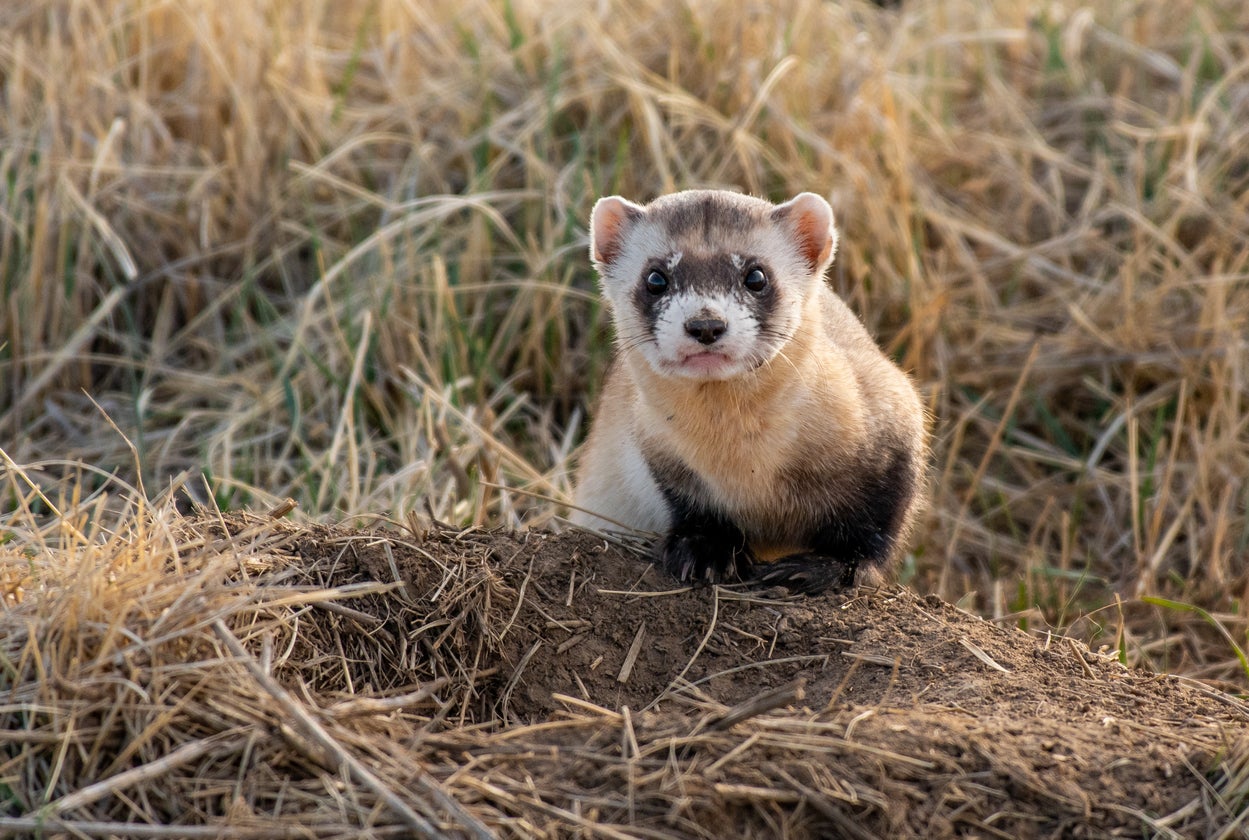Endangered black-footed ferrets get experimental Covid vaccine
First shots given out in spring

Your support helps us to tell the story
From reproductive rights to climate change to Big Tech, The Independent is on the ground when the story is developing. Whether it's investigating the financials of Elon Musk's pro-Trump PAC or producing our latest documentary, 'The A Word', which shines a light on the American women fighting for reproductive rights, we know how important it is to parse out the facts from the messaging.
At such a critical moment in US history, we need reporters on the ground. Your donation allows us to keep sending journalists to speak to both sides of the story.
The Independent is trusted by Americans across the entire political spectrum. And unlike many other quality news outlets, we choose not to lock Americans out of our reporting and analysis with paywalls. We believe quality journalism should be available to everyone, paid for by those who can afford it.
Your support makes all the difference.Black-footed ferrets in Colorado have been given an experimental Covid-19 vaccine in a bid to protect the endangered animals against the disease.
The first of the 120 weasel-like creatures to get the shot did so in spring, months before the first human injections were approved.
The species was rescued from the brink of extinction 40 years ago, but remain one of North America's most vulnerable animals and are particularly vulnerable to disease.
Vaccinating the ferrets, a close relative of minks also protects humans against the disease, experts say.
Last month authorities in Denmark culled 15 million minks amid Covid-19 outbreaks at some 200 farms in the Scandinavia country.
Minks are farmed for their thick fur, which is used to make dressing gowns, coats and among other outerwear garments.
It is understood the minks culled in Denmark had been carrying a mutated form of the virus.
"For highly contagious respiratory viruses, it's really important to be mindful of the animal reservoir," Dr Corey Casper, chief executive of the Infectious Disease Research Institute in Seattle, told Kaiser Health News on Wednesday.
"If the virus returns to the animal host and mutates, or changes, in such a way that it could be reintroduced to humans, then the humans would no longer have that immunity. That makes me very concerned."
It is believed the current pandemic has been caused by a coronavirus that originated in bats before spreading to an intermediary animal, and then onto humans.
Scientists fear that when it comes to farmed animals like minks, housed together in packed pens, is that the virus, contracted from humans, can mutate and pose a new threat to humans.
That is what experts said happened in Denmark, where officials reported 200 cases of Covid-19 in humans that had variants associated with farmed minks.
According to the World Health Organisation, about a dozen of those mutations could potentially undermine vaccine effectiveness.
However, that particular variant is now "most likely" extinct, Denmark's health ministry said on 19 November.
With black-footed ferrets, the main risk is to the animals themselves, which have weak immune systems.
There have been no reported cases of Covid-19 in black-footed ferrets, said Tonie Rocke, a research scientist at the National Wildlife Health Center who is testing the ferret vaccine.
"We don't have direct evidence that black-footed ferrets are susceptible to COVID-19, but given their close relationship to minks, we wouldn't want to find out," she added.
Ms Rocke began working on a vaccine in the spring, with help from Pete Gober, black-footed ferret recovery coordinator for the US Fish and Wildlife Service.
The first jabs were given to 18 one-year-old male ferrets in early spring, followed by a booster shot a few weeks later.
A few weeks after the second jab, virus antibodies showed up in the animals' blood.
By early autumn, 120 of the 180 ferrets housed at the US Fish and Wildlife Service center were given the injection.
The rest remain unvaccinated in case something goes wrong with the animals, which generally live four to six years in captivity, KHN reported.
The vaccine appears to be safe. However, there is no data yet to show whether it protects the animals from Covid-19, the outlet added.
"I can tell you, we have no idea if it will work," said Ms Rocke, who plans to conduct efficacy tests this winter.
She used a purified protein of the SARS-CoV-2 virus obtained from a commercial producer. She mixed the liquid protein with an adjuvant, a substance that enhances immune response, and injected it under the ferrets' skin.
Join our commenting forum
Join thought-provoking conversations, follow other Independent readers and see their replies
Comments